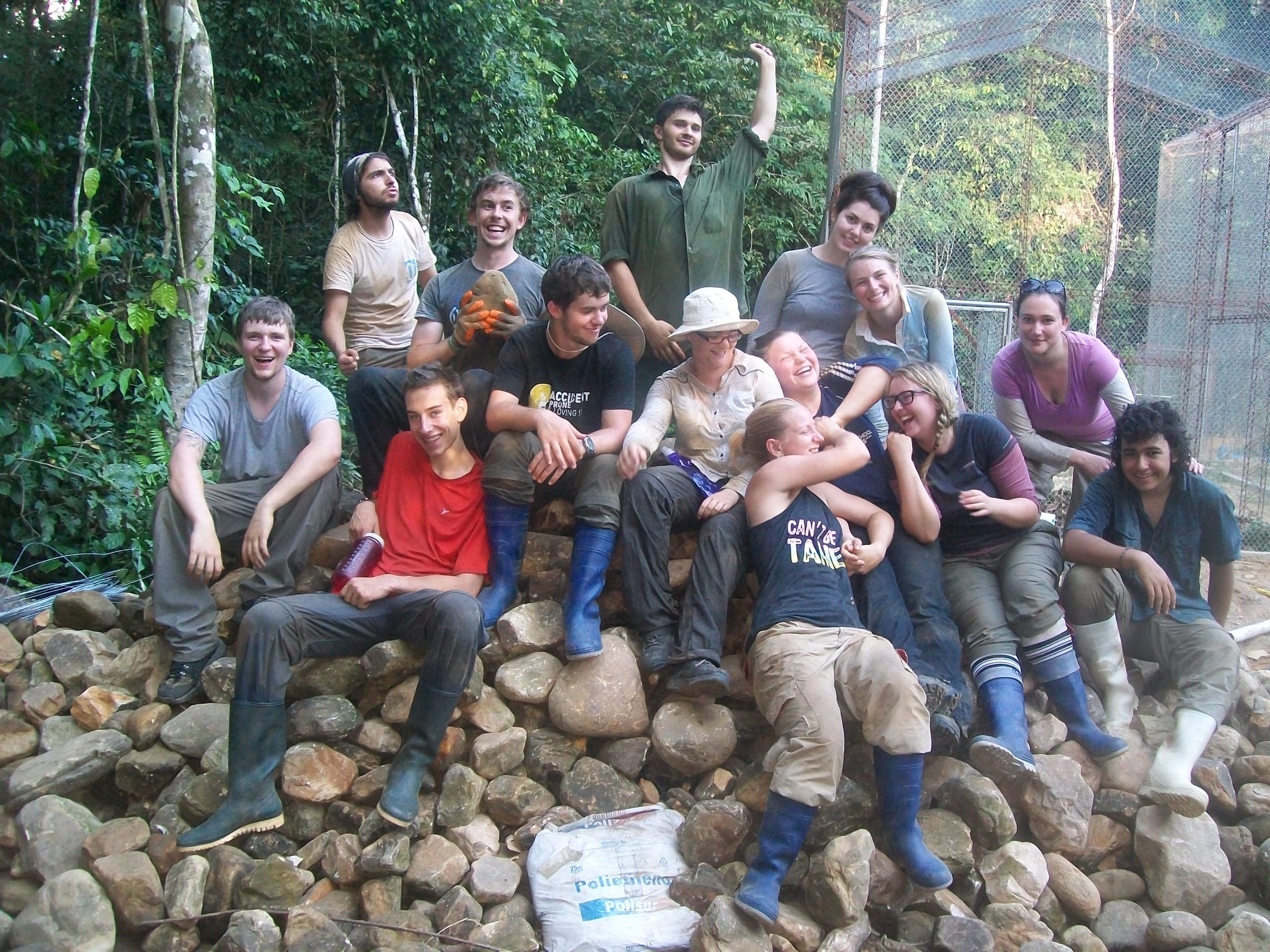As mentioned in a recent post, I spent this summer in South America. This involved a couple of weeks in Peru and six weeks in Bolivia, volunteering for the charity Inti Wara Yassi, which runs three animal sanctuaries.

During my time there, I was allocated a puma to walk every day, as well as being given other responsibilities looking after the “house animals”. This involved preparing food and cleaning of enclosures for the birds in the aviary, chanchos (pigs), tapirs and tejons (coatimundi).
It was also important to provide different forms of enrichment to each of these animals, tailored to their specific needs. I also participated in some essential construction work, such as building a new puma management cage and contributing to a set of monkey enclosures.
Accepting the extraordinary
To begin with, it was surreal to be living in the jungle and working so closely with such potentially dangerous animals. But before long, sleeping beneath mosquito nets, eating dinner (usually rice) at a candlelit table and having only a deck of cards and each other’s company for entertainment became the norm.
There was no electricity at the animal parks and only cold showers, which were surprising refreshing after the heat and humidity of the day.
Every day was a constant battle against mosquitos and we had to make the compromise between wearing enough layers to minimise being bitten and not overheating in the tropical environment. But we soon got used to the lifestyle.
Caring for Carlos
The daily commute to my puma, Carlos, involved a 15 minute walk through a waist-high swamp. I learned to love the swamp and accepted it as part of my daily routine, in addition to caring for and walking Carlos. Building a bond with him was incredibly rewarding and unlike anything I’d ever done before. I learnt so much from him and the other volunteers who were caring for different cats.

Although my time with Carlos counted as pre-clinical EMS, there was a vet on site, which allowed me to understand the minimal equipment and sheer lack of resources available to the animals in developing countries such as Bolivia.
Before experiencing it first hand, I would never have understood the problems these animals face and the struggle to resolve them, mainly due to lack of funds.
Life-changing experience
I had mixed feelings about coming home. I loved every minute of my time away – I’d made some great friends and had adjusted to living with utter basics – but it was strange to be suddenly immersed in the media-obsessed world once more.
Even small things like flushing toilets were a novelty at first. Crossing roads in the UK seemed unnatural when I’d gotten used to everything being the opposite way around. But slowly, I think I’m getting back into the swing of university life again.
Going to South America really was life-changing, in more ways than I could have imagined. It opened my eyes to a different way of life and allowed me to appreciate so much that we take for granted in day to day life.
The experience truly reminded me why I want to be a vet. I hope that one day I can use my skills and knowledge to make a difference, and help people in developing countries care for their animals.

Leave a Reply